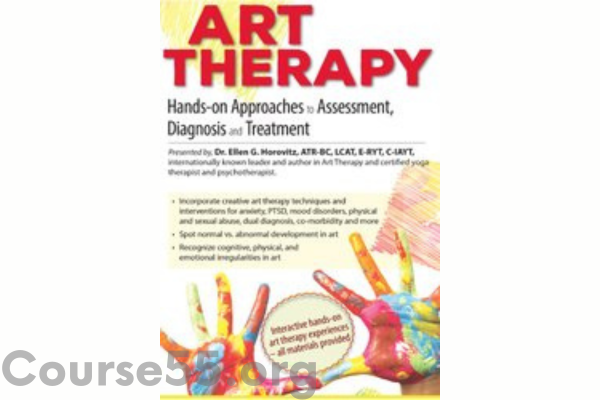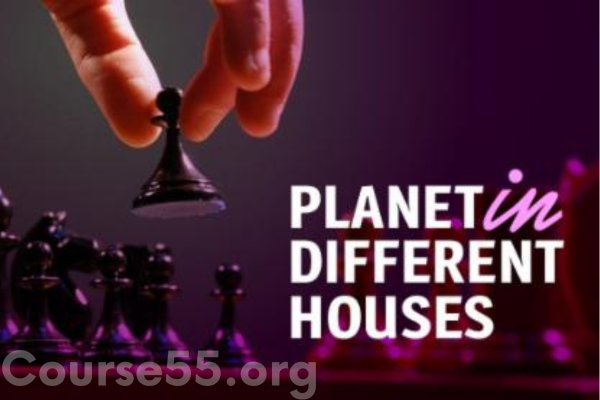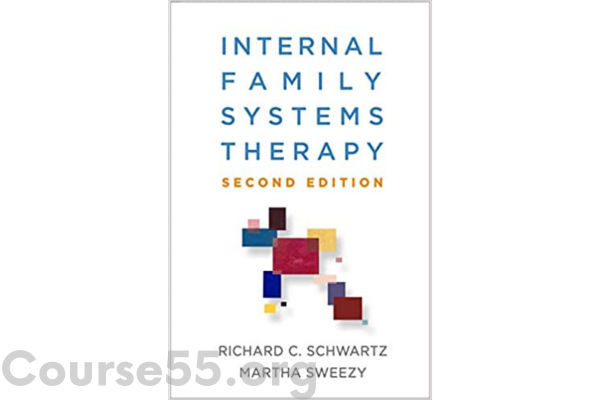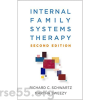-
×
 TCE - The Content Emporium - Human Design By PHOEBE KUHN
1 × $30.80
TCE - The Content Emporium - Human Design By PHOEBE KUHN
1 × $30.80 -
×
 MediCupping Vacuum Therapy - Home Study – Full Course (MD-FC) By ACE Institute Online
1 × $30.80
MediCupping Vacuum Therapy - Home Study – Full Course (MD-FC) By ACE Institute Online
1 × $30.80 -
×
 The 5K Club By Krista Dickson Education
1 × $30.80
The 5K Club By Krista Dickson Education
1 × $30.80 -
×
 Engage the Infinite Intelligence of Your Chakras for Joyful Living, Health & Wholeness with Russill Paul
1 × $30.80
Engage the Infinite Intelligence of Your Chakras for Joyful Living, Health & Wholeness with Russill Paul
1 × $30.80 -
×
 Charming Smooth Operations Template Pack By Jon Buchan
1 × $30.80
Charming Smooth Operations Template Pack By Jon Buchan
1 × $30.80 -
×
 Art Therapy: Hands-on Approaches to Assessment, Diagnosis and Treatment By Ellen Horovitz - PESI
1 × $23.10
Art Therapy: Hands-on Approaches to Assessment, Diagnosis and Treatment By Ellen Horovitz - PESI
1 × $23.10 -
×
 SET OF 6 WORKBOOKS: Sacred Geometry (All Ages) - Jain 108 Academy - Digital Download
1 × $30.80
SET OF 6 WORKBOOKS: Sacred Geometry (All Ages) - Jain 108 Academy - Digital Download
1 × $30.80 -
×
 Photography for Beginners By Josh Dunlop
1 × $30.80
Photography for Beginners By Josh Dunlop
1 × $30.80 -
×
 Investment Banking Networking Toolkit By Breaking Into Wall Street
1 × $30.80
Investment Banking Networking Toolkit By Breaking Into Wall Street
1 × $30.80 -
×
 Essence with The Elixir of Enlightenment: The Diamond Approach to Inner Realization By Hameed Ali
1 × $6.00
Essence with The Elixir of Enlightenment: The Diamond Approach to Inner Realization By Hameed Ali
1 × $6.00 -
×
 Getting Things Done Training Course | Crucial Learning By David Allen
1 × $30.80
Getting Things Done Training Course | Crucial Learning By David Allen
1 × $30.80 -
×
 How To Bounce Back Digital Bundle By John Demartini
1 × $30.80
How To Bounce Back Digital Bundle By John Demartini
1 × $30.80 -
×
 Killer Referral Machine By Tom Poland
1 × $30.80
Killer Referral Machine By Tom Poland
1 × $30.80 -
×
 Planets in different houses By Alok Khandelwal
1 × $30.80
Planets in different houses By Alok Khandelwal
1 × $30.80 -
×
 37 Super Techniques to Double Your Kindle Sales By Mike Balmaceda
1 × $30.80
37 Super Techniques to Double Your Kindle Sales By Mike Balmaceda
1 × $30.80 -
×
 SJG Trading - Butterflies Class By Steve Ganz
1 × $30.80
SJG Trading - Butterflies Class By Steve Ganz
1 × $30.80 -
×
 "Done-For-You" Manifest Your Dreams Course By Berkeley Well-Being Institute
1 × $30.80
"Done-For-You" Manifest Your Dreams Course By Berkeley Well-Being Institute
1 × $30.80 -
×
 Back Pain 302 - Diagnosis and Treatment of the Lumbar Radicular Syndromes By Mark Laslett
1 × $30.80
Back Pain 302 - Diagnosis and Treatment of the Lumbar Radicular Syndromes By Mark Laslett
1 × $30.80 -
×
 Sun Si Miao in Pediatric Clinic By Jeffrey C. Yuen
1 × $30.80
Sun Si Miao in Pediatric Clinic By Jeffrey C. Yuen
1 × $30.80 -
×
 The Meat & Hair Magic Message Bootcamp By Ash Ambirge
1 × $30.80
The Meat & Hair Magic Message Bootcamp By Ash Ambirge
1 × $30.80 -
×
 The Inner Journey Home: The Soul's Realization of the Unity of Reality By Hameed Ali
1 × $6.00
The Inner Journey Home: The Soul's Realization of the Unity of Reality By Hameed Ali
1 × $6.00 -
×
 Inspired Destiny By John Demartini
1 × $30.80
Inspired Destiny By John Demartini
1 × $30.80 -
×
 Reverse the Sandglass By Ruthy Alon - Movement Intelligence
1 × $30.80
Reverse the Sandglass By Ruthy Alon - Movement Intelligence
1 × $30.80 -
×
 Bitcoin Investing Course By Rekt Capital
1 × $30.80
Bitcoin Investing Course By Rekt Capital
1 × $30.80 -
×
 Brilliancy: The Essence of Intelligence (Diamond Body Series) By Hameed Ali
1 × $6.00
Brilliancy: The Essence of Intelligence (Diamond Body Series) By Hameed Ali
1 × $6.00 -
×
 The Breathing For Energy Program - The Energy Blueprint & Patrick McKeown
1 × $30.80
The Breathing For Energy Program - The Energy Blueprint & Patrick McKeown
1 × $30.80
Internal Family Systems Therapy (IFS) by Richard Schwartz
$219.00 Original price was: $219.00.$23.10Current price is: $23.10.
SKU: C55org.6097fHT54FI0
Category: Download
Tags: IFS, Internal Family Systems Therapy, Richard Schwartz
Internal Family Systems Therapy (IFS) by Richard Schwartz: A Comprehensive Review – Immediate Download!
Content Proof:

Internal Family Systems Therapy (IFS), developed by Dr. Richard Schwartz, presents a revolutionary approach to psychotherapy by exploring the complexities of human psychology. This model suggests that each person comprises multiple subpersonalities, known as “parts,” each with its own unique emotions, memories, and roles. Within the IFS framework, conflicts between these internal parts often contribute to psychological distress. The essence of this therapy lies in helping individuals recognize and integrate these parts, fostering emotional healing and resilience.
Drawing from systems thinking and principles of family therapy, IFS provides a structured approach to understanding internal dynamics. At its core, the model highlights the significance of the Self—a wise, compassionate, and confident aspect that can guide an individual’s internal system toward harmony. When this Self is engaged, it acts as a mediator, promoting balance among the various parts. By implementing IFS, individuals gain deeper self-awareness and develop a more constructive approach to handling life’s difficulties.
The following sections outline the foundational principles of IFS, the classification of internal parts, and the therapeutic process, shedding light on its profound impact on psychological well-being.
Core Principles of IFS

Internal Family Systems operates on the premise that every person consists of multiple parts, each playing a distinct role in shaping their thoughts, emotions, and behaviors. Recognizing these components is essential for understanding how IFS facilitates healing. The primary categories of parts include:
- Managers: These parts focus on maintaining control and structure in daily life. Their primary role is to prevent emotional pain by emphasizing order, responsibility, and efficiency. Perfectionism and productivity often characterize manager-driven behavior.
- Exiles: These parts carry deep-seated trauma, housing painful emotions and memories that are often suppressed. Exiles are hidden away as a means of self-protection, but their unresolved pain can manifest as emotional distress if left unaddressed.
- Firefighters: When exiles threaten to surface, firefighters act impulsively to suppress emotional pain. These parts may engage in self-destructive behaviors, such as substance use or avoidance strategies, prioritizing immediate relief over long-term well-being.
By categorizing these parts, IFS enables individuals to recognize how they interact internally, often resulting in inner conflicts. Importantly, the model acknowledges that all parts serve a protective function, even if their methods are maladaptive.
The Role of Self in the Healing Process
A fundamental aspect of IFS is the concept of the Self, which embodies confidence, wisdom, and compassion. The therapeutic process emphasizes the importance of accessing the Self to foster communication between internal parts, allowing for greater harmony and healing.
The IFS therapeutic process typically unfolds in the following steps:
- Identification: Therapists help individuals identify the different parts that influence their thoughts and behaviors, recognizing their roles and intentions.
- Connection: Once identified, individuals engage in guided dialogues with their parts to develop understanding and empathy toward them.
- Integration: The ultimate goal of IFS is to create internal harmony by helping parts coexist peacefully under the guidance of the Self, promoting long-term emotional well-being.
Dr. Schwartz’s approach steers away from traditional pathologizing, instead viewing psychological distress as a product of parts operating in misalignment rather than inherent personal flaws. This perspective fosters a more compassionate and constructive approach to mental health.
Applications of Internal Family Systems in Various Contexts
A key strength of Internal Family Systems Therapy is its adaptability across different therapeutic settings. IFS is widely used in:
- Individual Therapy: It provides a structured framework for individuals seeking personal growth and resolution of emotional struggles.
- Couples Therapy: By understanding their own internal conflicts, partners can enhance communication and empathy within their relationships.
- Family Therapy: The model extends to family dynamics, helping members understand their own internal roles and improving interpersonal relationships.
Additionally, IFS has demonstrated effectiveness in addressing trauma, offering individuals the tools needed to process past pain and develop resilience. Research and clinical experiences highlight the model’s success across various demographics and mental health concerns.
Research and Recognition of Internal Family Systems
IFS is not just a theoretical framework—it is supported by empirical research demonstrating its efficacy. Dr. Schwartz’s work has earned widespread recognition, reinforcing the model’s value in modern psychotherapy.
Studies indicate that IFS is effective in reducing symptoms of anxiety and depression, enhancing resilience, and facilitating trauma recovery. A study published in the Journal of Traumatic Stress found that participants who underwent IFS therapy experienced significant symptom relief compared to traditional approaches. These findings substantiate the model’s effectiveness and highlight its growing acceptance in clinical settings.
Beyond its empirical support, IFS is valued for its accessibility. The model resonates with individuals who may struggle to articulate their emotions, providing a structured yet flexible approach to self-exploration. This client-centered focus strengthens the therapeutic alliance, a crucial component of successful therapy.
Conclusion: The Transformative Power of Internal Family Systems
In summary, Internal Family Systems Therapy by Dr. Richard Schwartz offers a profound and innovative approach to understanding and healing the mind. By acknowledging and integrating the different aspects of oneself, individuals can cultivate self-compassion, emotional balance, and resilience. Through the lens of Internal Family Systems, healing is not about eliminating unwanted emotions but fostering harmony among internal parts under the guidance of the Self.
As the field of mental health continues to evolve, Internal Family Systems remains a versatile and impactful tool across various therapeutic contexts. Whether used for individual growth, relationship enhancement, or trauma recovery, IFS empowers individuals to embrace their full selves. For those seeking a deeper connection with their emotions and a pathway to lasting well-being, this therapeutic model offers an invaluable resource.
Frequently Asked Questions:
Business Model Innovation: We operate a group buying strategy, allowing participants to share costs and access popular courses at reduced prices. This model benefits individuals with limited financial resources, despite concerns from content creators about distribution methods.
Legal Considerations: The legality of our operations involves complex issues. Although we don’t have explicit permission from course creators to resell their content, there are no specific resale restrictions stated at the time of purchase. This ambiguity creates an opportunity for us to provide affordable educational resources.
Quality Control: We ensure that all course materials purchased are identical to those offered directly by the creators. However, it’s important to understand that we are not official providers. As such, our offerings do not include:
– Live coaching calls or sessions with the course author.
– Access to exclusive author-controlled groups or portals.
– Membership in private forums.
– Direct email support from the author or their team.
We aim to reduce the cost barrier in education by offering these courses independently, without the premium services available through official channels. We appreciate your understanding of our unique approach.
Be the first to review “Internal Family Systems Therapy (IFS) by Richard Schwartz” Cancel reply
You must be logged in to post a review.






Reviews
There are no reviews yet.